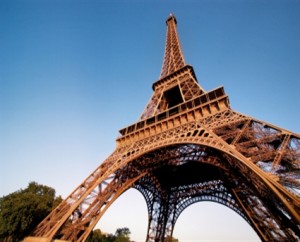What to Know When Doing Business in France
It’s easy to fall into the trap of putting cultural generalizations onto a country – when traveling somewhere on vacation, that’s usually not a problem, so long as you abide by local rules and customs on dress, public behavior, and social etiquette. However, the business world is very different, and before you travel, reading up as much as you can is essential.
France is no exception; for a country famous for the relaxed, café lifestyle, the business world is extremely formal, and when dealing with French clients, they can seem stand-offish, or even unfriendly. Monsieur and Madame are the order of the day, and you should never use first names unless specifically invited to do so. Additionally, shake hands rather than attempting to ‘faire la bise’ – the casual air kiss usually employed in social greeting – and always use the formal vous rather than tu form when speaking. Don’t speak French? Learn. Your French clients will not expect you to be fluent, but to be able to get through the initial formalities of greetings and introductions in basic French will be hugely appreciated.
Business dress is conservative, formal, and stylish. The French will draw conclusions about you based on your appearance, although it will be more about the cut of your suit and your level of grooming than your looks. Elegant and simple clothes are key, for men and women.
Formal meetings may not be what you’re used to when conducting business on home soil. For example, avoid the months of July and August, where most of Europe is simply out of the office for up to four weeks at a time. There’s also a noticeable slow-down around Easter and December, so it’s worthwhile checking with your clients to confirm that everybody you need to see will be present, before booking flights that may be a waste of time and money for your company. You will come across several cultural differences; punctuality is a moveable feast, and being 15 minutes late is quite acceptable. The further south you travel, the less important punctuality seems to be, so don’t book meetings back to back with short time windows for getting from one to the other – you may be something more than fashionably and acceptably late by the end of the business day.
Meetings can also be quite volatile; rather than being true arguments, raised voices are more usually seen as a passionate means of stating a case, and rationally raising points with clients and colleagues. Polite, formal courtesy is key, and do avoid asking personal questions – home and work life are very separate things in much of mainland Europe, and workers prefer to keep them that way. Also to be avoided are any optimistic exaggerations about what your company or service can provide – your prospective French clients will prefer to hear the facts, plainly stated, and backed up with logical reasoning.
One area where you may find yourself on more familiar ground in terms of your pre-conceptions is the formal business lunch. This is where professional relationships are formed, and it’s quite usual for lunch meetings to take two hours or more, and involve three or four courses, wine, and coffee. Things to note, however – beware of over-seasoning your food at the table, as the implication could be that you find it tasteless, especially if you’ve been invited to a private home, in which case also try to eat everything on your plate.
Doing business in France or overseas, in general, can be tricky, but plenty of research, and following your hosts’ social and professional cues will help you achieve success. Bonne chance!







